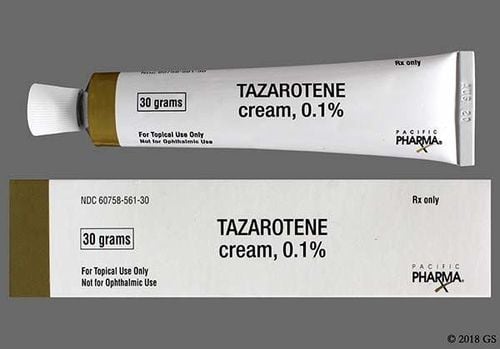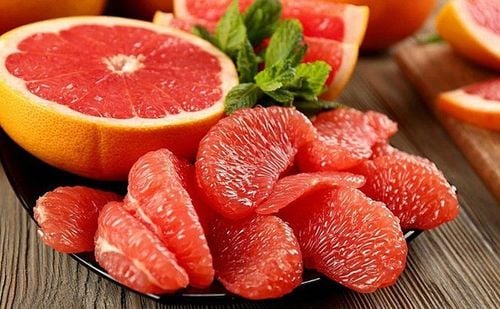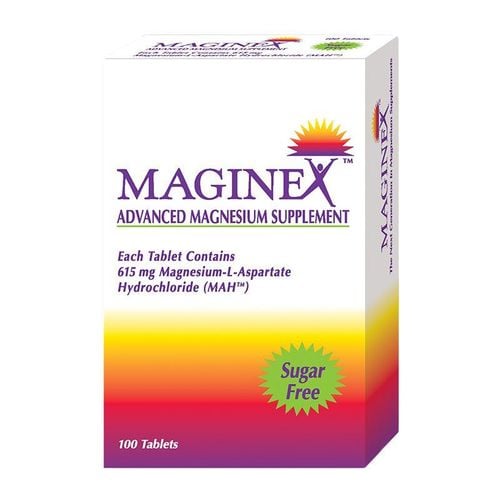This is an automatically translated article.
In the first year of birth, the baby's weight triples after birth. To grow to that extent, children need more nutrients than at any other time. Children thrive on dozens of nutrients that work together to promote growth and development, like calcium, vitamin D, other vitamins...
1. Calcium
Calcium is a super nutrient that helps keep bones and teeth strong. This is the most important nutrient in bone growth. The best sources of calcium come from food sources, through the following supplements:
You should start your child's day with a bowl of cold or hot whole-grain cereal, topped with skim or low-fat milk and fruit. sliced fresh plants. Offer your child low-fat yogurt, smoothies or cottage cheese after school and between meals for a nutritious snack. Calcium-fortified juices and cereals are good alternatives to meet your child's daily needs. Your child's snacks can be modified to increase calcium intake by mixing low-fat chocolate milk, bananas and ice into a delicious smoothie for a snack, dessert or snack.
Teenage girls in particular are among those with the lowest calcium intake relative to their needs. A calcium deficiency during adolescence can be difficult because the body only forms about half of the bone mass it would otherwise have. Continuous calcium deficiency during these years is one of the risk factors for developing osteoporosis later in life. It's even worse for women because the risk is higher.
So how much calcium do children need to get? According to experts, children's daily calcium needs depend on their age:
Children aged 1 to 3 years need 500 milligrams. Children 4 to 8 years old need 800 milligrams. Children 9 to 18 years old need 1,300 milligrams.

Canxi là siêu chất dinh dưỡng giúp xương và răng chắc khỏe
2. EASY Vitamins
Vitamin D is important for calcium absorption to help form and maintain strong bones. The American Academy of Pediatrics (AAP) recommends that all breastfed babies get 400 IU of vitamin D per day.
Milk is one of the few sources of vitamin D. So children over 1 year of age should drink 32 ounces of fortified milk a day or get other sources of vitamin D.
3. Fiber
Children also need fiber, aka roughage. Everyone, including children, needs plenty of fiber each day. Introduce your child to the delicious taste of fiber foods:
A bowl of fiber-rich cereal is a great start to meeting your child's daily needs. Read food labels to find whole grains that provide many grams of fiber per serving. Typically, the more sugar in a cereal, the less fiber. Add sweetness to cereals with fresh, canned (unsweetened) or frozen fruit. Have pre-cut fruits and vegetables available to help your child meet the annual recommended fiber plus daily fiber. Give your child juice to a minimum. Fruits and vegetables contain more fiber and less sugar than most juices. Beans are foods that are high in fiber and protein. You can use beans in soups, stews, salads and omelets.

Nhóm thực phẩm chứa chất xơ
4. Vitamins
Vitamin A: This is considered the key to good vision, especially color detection and night vision. It supports a child's immune system by protecting the body against germs and boosting infection resistance.
Give your child a vitamin A supplement by feeding them carrots, vegetables and fruits of different colors, like cantaloupe and sweet potatoes.
B vitamins: Includes thiamin, riboflavin, niacin, folate, pantothenic acid, B6, B12 and biotin, which help their body make and use energy. Without enough vitamin B, a child can develop anemia.
You can find a B vitamin in each food group. Whole grains, fish, chicken, meat, green vegetables and milk are foods rich in vitamin B.
Vitamin C: Helps children avoid sneezing and sniffling by helping the body fight infections. It also helps scratches and wounds heal faster.
Children can drink a glass of orange juice or better yet eat an orange. Other fruits and vegetables are also excellent sources of vitamin C, such as strawberries, tomatoes, cantaloupe, and sweet red peppers.
5. Choline
This nutrient is not a vitamin, although it is often grouped with the B vitamins, it is also an important one. The cells in the body need Choline to keep their structure, and the nervous system needs it to speed the transmission of signals throughout the body.
The body cannot make choline on its own, so children need to get it through food sources such as eggs, fish, beef, chicken and broccoli.

Bông cải xanh chứa lượng lớn choline
6. Iron
Red blood cells use iron to transport oxygen to the rest of the body.
Beef, lean meat, or give kids other foods like beans, dark green vegetables, and iron-fortified cereals.
Children's diets are often deficient in iron, an essential mineral that carries oxygen in the blood and keeps children full of energy. Fortify iron in your child's diet with lean meats, eggs, fish, dark green vegetables, beans, dried fruit, and iron-fortified cereals.
Use eggs for breakfast with oranges or orange juice to enhance iron absorption. Offer your child a salad of spinach, strawberries, dried cranberries, or chopped almonds. When children are not cooperative at meals, iron-fortified cereals with low-fat milk or yogurt and fruit can be offered as a suitable meal replacement.
7. Magnesium
This nutrient is one of the building blocks of cells in the body and plays a very important role in creating energy. A diet rich in magnesium will help keep your child's heart healthy into adulthood.
Bran cereals, brown rice, tofu, beans, almonds, and other nuts are all excellent sources of magnesium.
8. Potassium
Almost every cell and organ in the body needs potassium to function properly. It is also important for blood pressure, supporting heart and muscle function when children are active.
Bananas are a great source of potassium, but you can also find it in sweet potatoes, white beans, skim milk, and low-fat yogurt.

Thành phần Kali được tìm thấy trong khoai lang
9. Zinc
Zinc can help children avoid colds by helping their immune systems fight against invading viruses and other germs. In addition, children's bodies need zinc for adequate growth and development.
Nuts, meat, milk, beans, .. are rich sources of zinc that you can learn and add in the menu of your baby and family today.
10. Protein
Every cell in the body is made of protein, also known as protein. This is an essential nutrient for the healthy growth and development of the body. Protein is found in animal products, such as milk, eggs, seafood, and meat. In lesser amounts, it is also found in beans, nuts, vegetables and whole grains. Enhance nutrition for children by adding foods rich in protein.
Even difficult kids love eggs. French toast, scrambled eggs, pancakes and omelets are all good sources of protein, iron and other important nutrients. Feed your child dishes made with lake fish for protein with heart-healthy omega-3 fatty acids Add nuts to cereal, yogurt, or vegetables for a boost of protein, fiber, and fat healthy.
11. Antioxidants
Antioxidants help protect the body against harmful substances that can damage cells in the body. Fortify your child's diet with foods rich in antioxidants, such as almonds, berries, citrus, carrots, spinach, tomatoes, and bell peppers.
Feed your child oranges or drink 100% orange juice Prepare a lunch or snack for your child with carrots, small tomatoes and a few slices of red bell pepper. These are all foods rich in antioxidants. Add more tomatoes - antioxidant foods or ketchup to pizza, spaghetti, meatloaf, soups and stews.

Phụ huynh có thể cho trẻ dùng bữa nhẹ với cà rốt giúp cung cấp các chất chống oxy hóa
12. Essential Fatty Acids
ARA and DHA are fatty acids that are very important for your baby's brain and vision.
They are found in breast milk when the mother gets them through her diet.
13. Nucleotides
These RNA and DNA building blocks are also found in breast milk.
Nucleotides help strengthen the baby's immune system and developing digestive organs.
14. Prebiotics and Probiotics
Prebiotics are "good" bacteria that can help the body fight off "bad" bacteria that cause infections. Prebiotics promote the growth of good bacteria in the gut.
Probiotic formula may prevent babies from developing eczema, but it doesn't seem to be beneficial in treating diarrhea or colic.
Babies born prematurely (before 37 weeks) or with low birth weight need special nutrition to help them catch up growth. Breastfed babies can get some extra nutrients found in milk, including:
Extra calories Extra fat Protein Vitamins Minerals Preterm babies who are not breastfed will need a special formula. These recipes are higher in calories. They also contain extra protein, vitamins and minerals.
In the first 12 months, babies should not be given whole cow's milk because there is not enough iron, vitamin E and essential fatty acids for babies. In addition, this product contains too much protein, sodium and potassium for the child's body to absorb, and can be harmful.
If you have a need for consultation and examination at the Hospitals of the National Health System, please book an appointment on the website for service.
Reference source: webmd.com













